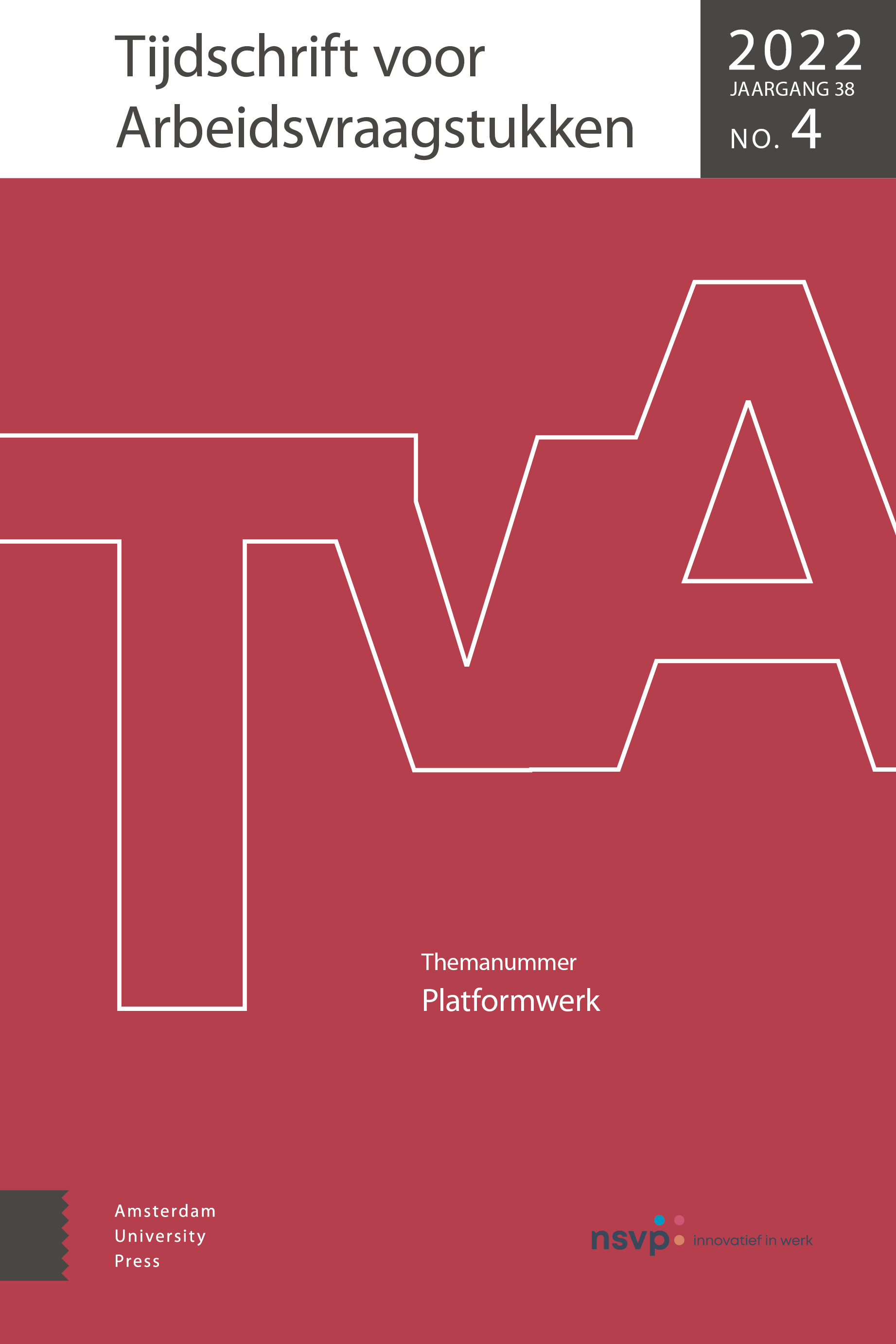-
OASamenhang van platformwerk met werkomstandigheden en welzijn
- Amsterdam University Press
- Source: Tijdschrift voor Arbeidsvraagstukken, Volume 38, Issue 4, Dec 2022, p. 580 - 600
-
- 01 Dec 2022
Abstract
Platformwerk is een arbeidsovereenkomst die zich kenmerkt door het gebruik van digitale platformen om arbeid en monetaire beloning uit te wisselen. Steeds meer mensen werken via online platformen. Daarom is het belangrijk om mogelijke verschillen met andere arbeidsovereenkomsten in kaart te brengen, zodat kan worden nagegaan of een specifiekere aanpak nodig is. In deze bijdrage bekijken we daarom de resultaten van een onderzoek dat de samenhang van platformwerk met werkomstandigheden en welzijn peilt (N = 3620). We bekijken hoe platformwerk samenhangt met demografische variabelen, werkomstandigheden en de mentale gezondheid. Uit de resultaten blijkt dat platformwerk in Nederland voornamelijk wordt uitgevoerd door jonge mensen zonder kinderen. Opvallend is dat personen die platformwerk verrichten minder autonomie, verhoogde werkbelasting, meer monotoon werk, vaker onheuse bejegening, en minder emotionele steun rapporteren. Met name platformwerkers zagen zowel de kansen als bedreigingen van technologische ontwikkelingen voor hun werkzame leven. Platformwerkers rapporteerden minder balans tussen werk en thuis, meer baanonzekerheid, hogere uitputting en minder bevlogenheid dan mensen die geen platformwerk verrichten. Uit de analyses bleek dat hogere uitputting en lage bevlogenheid onder platformwerkers kan worden verbeterd als platformwerkers zelf proactief hun welzijn verbeteren, bijvoorbeeld door playful work design.


